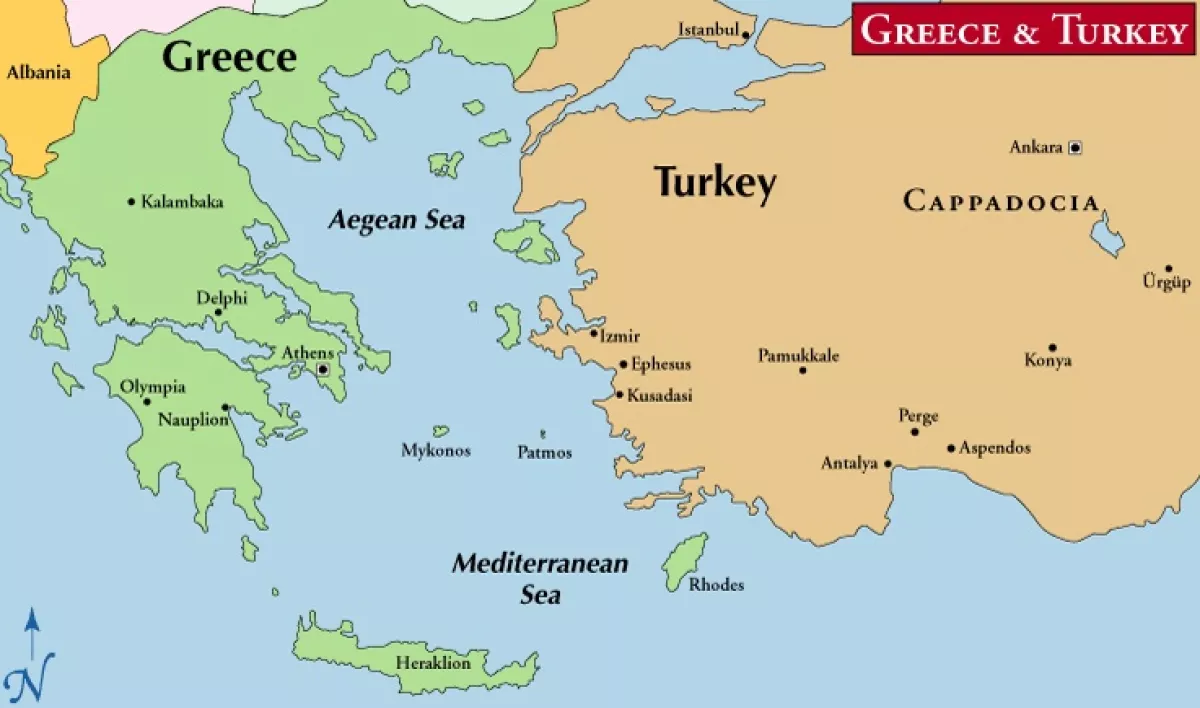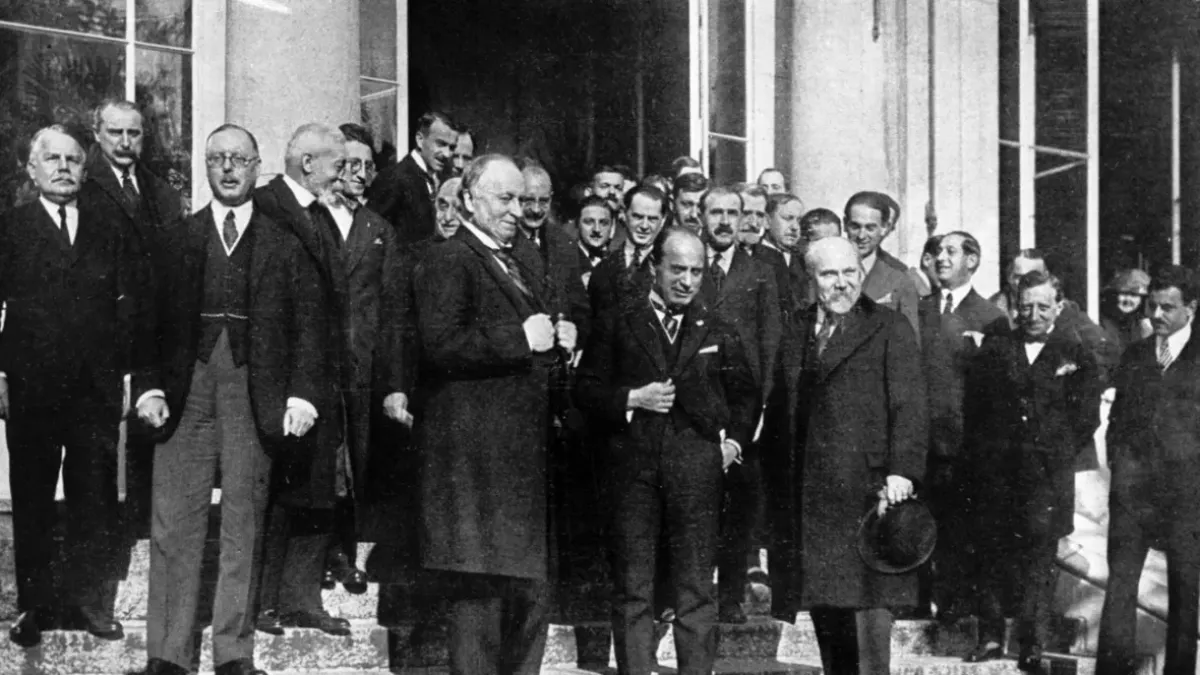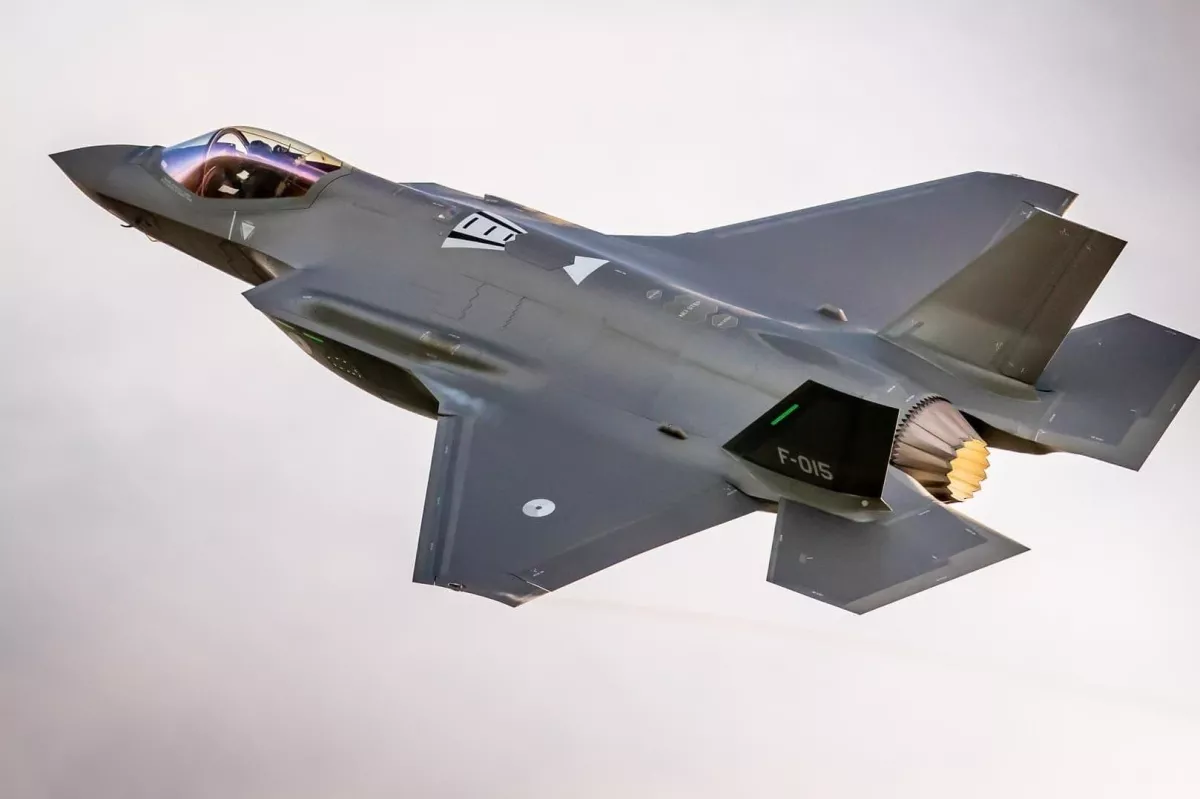Athens provokes Ankara: militarisation vs. peace A clash of interests in the Aegean Sea
Greece recently announced plans to deploy so-called “self-sufficient” military units on the Aegean islands, some of which lie just 1,575 metres from Türkiye—an undoubtedly provocative move that is expected to trigger a new wave of tension between Athens and Ankara.

Greek-Turkish relations are far from ideal and have long been marked by recurring crises due to various territorial disputes, including disagreements over maritime boundaries, airspace, continental shelf rights, and the status of islands. Now, adding fuel to the fire, Greece is continuing the militarisation of the Aegean islands.
According to the Turkish newspaper Daily Sabah, the plan, part of the so-called “Agenda 2030,” aims to make frontline units virtually autonomous—capable of growing their own food, generating their own energy, and operating without orders or supplies from central command. The publication also notes that the unlawful deployment of military assets on these islands clearly demonstrates that Greece has violated international legal agreements—specifically, the Treaty of Lausanne (1923) and the Paris Peace Treaty (1947).

Background: The Lausanne Peace Treaty of 1923 was one of the key outcome documents of the Lausanne Conference (1922–1923), signed on July 24, 1923, by the United Kingdom, France, Italy, Japan, Romania, and the Kingdom of Serbs, Croats and Slovenes on one side, and Türkiye on the other. It replaced the Treaty of Sèvres of 1920.
According to the Lausanne Treaty and the Paris Peace Agreement of 1947, the islands of Lemnos, Samothrace, and several others in the eastern Aegean Sea were ceded to Greece on the condition that they remain demilitarised in order to “preserve peace.”
These documents explicitly prohibit the deployment of any armed forces to these territories—except for Greek law enforcement units. Any breach of this demilitarised status, under the treaties, gives Türkiye the right to raise the issue of sovereignty over the eastern Aegean islands, which number up to eighteen.
Back in June 2022, Turkish President Recep Tayyip Erdoğan once again urged Greece to end its militarisation policy in the Aegean, warning of retaliatory measures.
“I once again call on Greece to stop militarising the [Aegean] islands and to abide by international agreements. I’m not joking, I’m speaking in full seriousness,” the Turkish leader declared during the “Efes-2022” military drills.
Similar warnings were issued at the time by Turkish Foreign Minister Mevlüt Çavuşoğlu: “Greece has violated the status of the islands—they must be demilitarised. Otherwise, the question of sovereignty over them will be placed on the agenda.”
It is highly likely that Greece’s recent manoeuvre in the Aegean Sea—disguised as an economic initiative but clearly aimed at Türkiye—is linked to Athens’ long-term ambitions to secure control over the exploration, drilling, and transportation of newly discovered hydrocarbon resources in the Eastern Mediterranean. Such a move naturally runs counter to Türkiye’s interests and significantly increases the likelihood of a renewed diplomatic crisis between Ankara and Athens. That is the first point.
Secondly, at the end of last month, the Greek government announced that it might veto Türkiye’s access to the €150 billion European Union defence initiative known as the Strategic Technologies for Europe Platform (STEP), formerly referred to as SAFE (Security Action for Europe), unless Ankara provides assurances that its weaponry will not be used against Greece. However, despite Greece’s ultimatum, Türkiye—as a NATO member, though not an EU country—technically retains the right to access EU defence industry funding and joint procurement programmes under the STEP framework.
It is more than likely that Athens’ current discontent is also linked to Türkiye’s expected acquisition of Eurofighter jets. Greek Prime Minister Kyriakos Mitsotakis did not make his statement coincidentally when he declared that his country would not allow Türkiye to participate in EU defence projects—this came right after Germany announced its approval of Eurofighter sales to Ankara. Mitsotakis also noted that while Greece could, if it deemed necessary, block Türkiye’s access to STEP funding, it could not actually prevent the Eurofighter deal from going through.

However, despite its accusations against Türkiye, Athens has launched a multi-billion-euro, 10-year procurement programme that includes the purchase of around 40 new F-35 fighter jets from the United States and three frigates from France to further strengthen its Armed Forces.
“We’ve chosen the Switchblade model from the U.S.,” a Greek official familiar with the matter stated back in 2024. Additionally, in April this year, Prime Minister Kyriakos Mitsotakis announced a major military spending package—Greece plans to invest €25 billion in defence by 2037.
In sum, all signs point to rising tensions ahead. With both sides doubling down on their military strategies, a new round of confrontation in the Aegean Sea seems increasingly inevitable.








